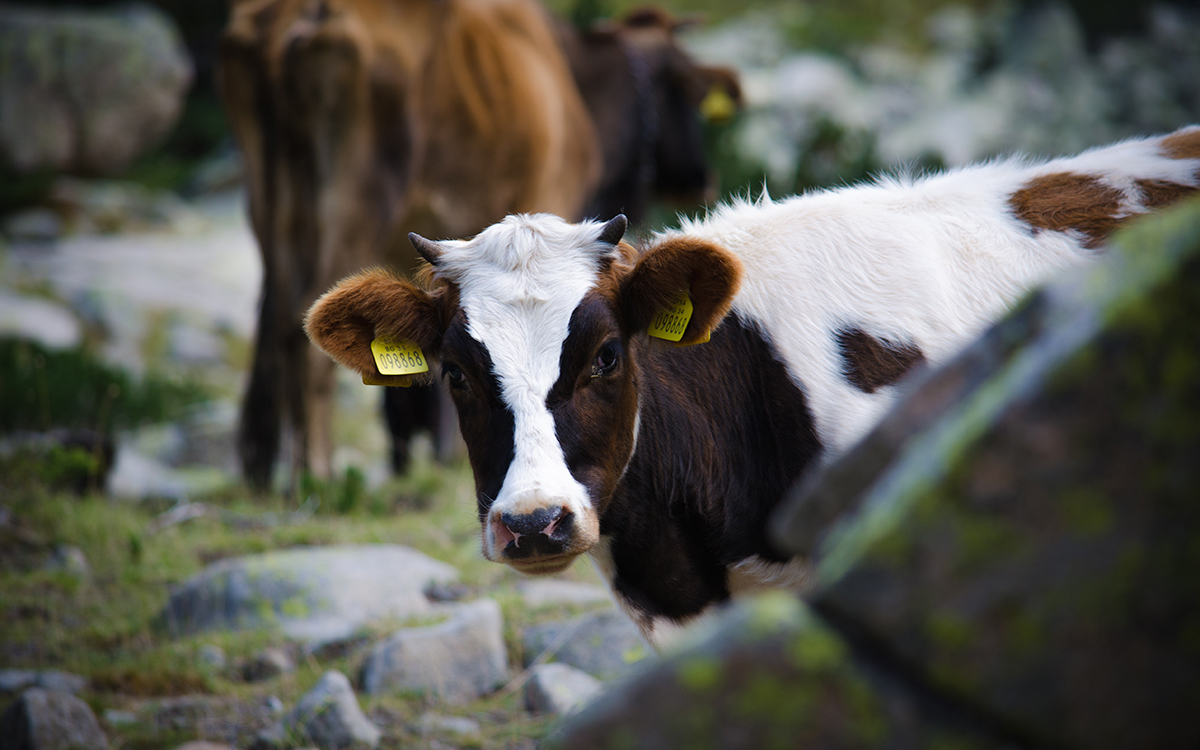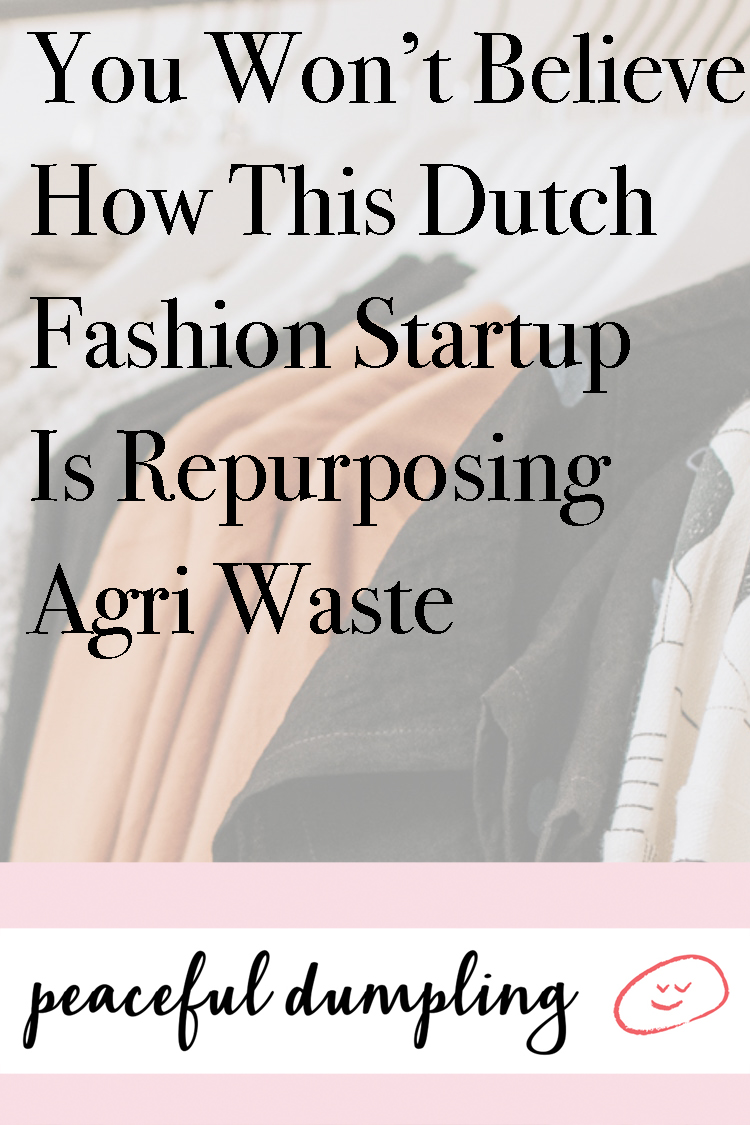With a growing population straining our planet’s resources, there’s no time to waste in coming up with sustainable solutions to our most polluting industries, such as that of fast fashion. From its intense water consumption and pesticide use for cotton production to the microplastic crisis plaguing our seas as a result of synthetic fibers, we are doing it all wrong, it seems.

In recent years there have been ingenious alternatives becoming available, as biodegradable, vegan-friendly options for the earth-conscious. This has delighted us greatly over here at Peaceful Dumpling. But there is perhaps nothing I’m more curious about than the Dutch startup embracing a not-so-sexy resource and turning it into actual, wearable garments. The latest in the sustainable fashion movement? Those transforming cow dung into clothing.
When I think about the ways in which we can produce sustainable clothing, there are boxes that need to be ticked. Firstly, the fabrics need to be biodegradable. That throws anything derived from crude oil out the window. Secondly, they must be made by workers employed in safe, fair conditions. Next, there are the dyes used; these can’t pollute our waterways. Fourth, the energy used for processing must be derived from renewable resources such as solar, wind or tidal. And lastly, there should be no waste. If a company can do one better and transform what’s widely considered a nuisance waste product into something beautiful, I’m all ears.
Dutch entrepreneur, Jalila Essaïdi, has decided to take on the enormous challenge of proving to the world that out of something widely deemed revolting and odiferous can come something beautiful. Her fashion startup, Mestic, utilizes the latest technology, creating bioplastics from cowpats. The processing involves recycling the dung into its raw components, thus allowing the devastating effects of the waste to be properly intercepted and dealt with. So, these materials include, a concentration of the chemicals such as the phosphorus and nitrogen, plant cellulose, bioplastic and water. Doesn’t sound so gross, right?

Our intense global demand for beef and dairy has meant that cows are serving as some of the biggest sources of pollution on the planet. Agricultural run-off from their waste causes terrible water pollution in the form of eutrophication. This is a process whereby unnaturally high levels of nitrogen and phosphorus enter river, lake or coastal water, causing algae to bloom. This – combined with the sediment that also makes its way into the water – creates a thick mat of growth on the water’s surface. Acting as a shield, preventing sunlight from reaching photosynthetic organisms below, there is a mass death of many benthic dwellers. Animal life, unfortunately, isn’t spared either. All of this surface growth starves the water of oxygen, rendering the environment inviable. Bacteria then move in and commence a mass decomposition which further starves the water of oxygen, and so you see it’s a vicious cycle.
Cows aren’t the sole cause of this devastating process; we witness it around the world where there are high levels of agricultural run-off. But our herds certainly are a major contributor. The only impact that this process, unfortunately, does not lighten is that of gastric methane emissions which play a powerful role in global warming.
Is it a sustainable long-term solution, using cow poo for clothing? I think based on where we’re at now, it certainly will do us no harm. We have a planet overloaded with waste and any dent that we can put in that is surely a good thing. Such innovative thinking will also be what drives us towards a more conscious fashion industry that operates on the principle of a circular economy and incorporates completely biodegradable materials into its finished products.
Lastly, what does this means for vegans? As what is technically an animal product, is this likely to sit on the right or wrong side of the fence? Every vegan is different in his or her reasoning for adopting the lifestyle and I suppose just as some support ethical wool or local honey, some might feel this a textile worth supporting. I think if the choice is between PU and this and both were in my price range and served the same function, I’d support the latter. The end goal is to dramatically reduce the amount of animal agriculture that we have on the planet, but that’s no easy feat. If it’s all about baby steps, this might just be the kind of thing we should proudly support with the current state of affairs.

What are your thoughts on clothing made of cowpats? Would you support this as a biodegradable textile?
Also by Kat: Get Mermaid-Like Radiance With These 6 Skin Saviors Straight From The Sea
Related: Natural Dye Is In, Says Vogue. Why This Is Great News For Sustainable Fashion
How To Embrace Sustainable Fashion Without Depriving Yourself Of Trends (#ForTheWin)
Get more like this—Subscribe to our daily inspirational newsletter for exclusive content!
—
